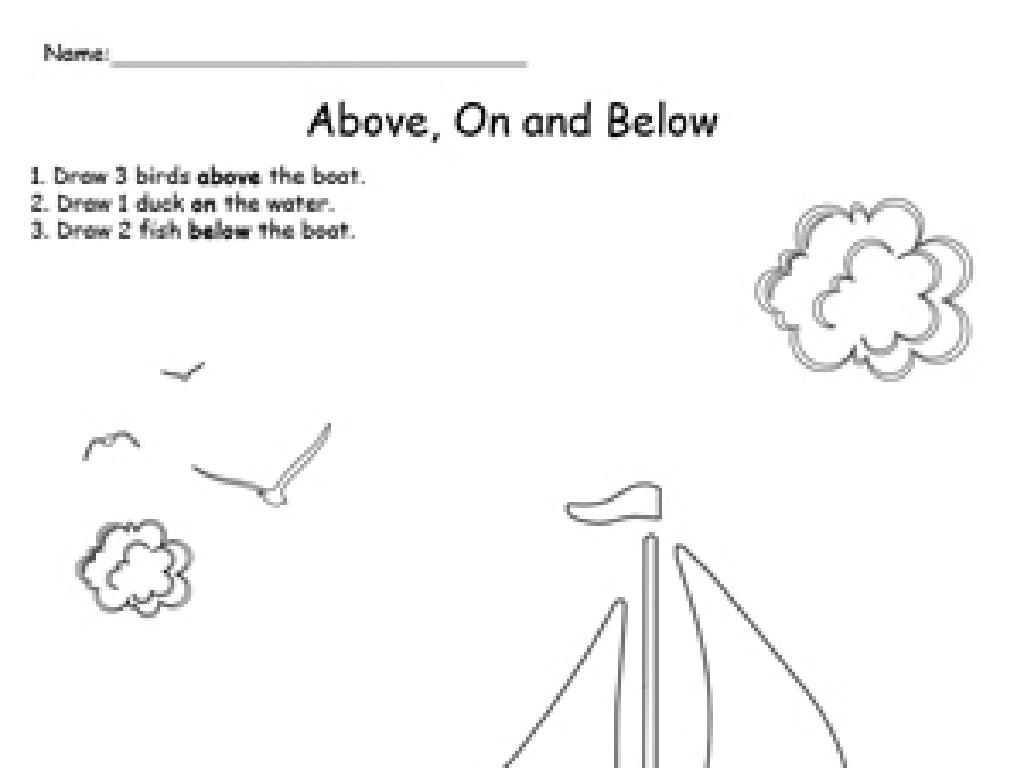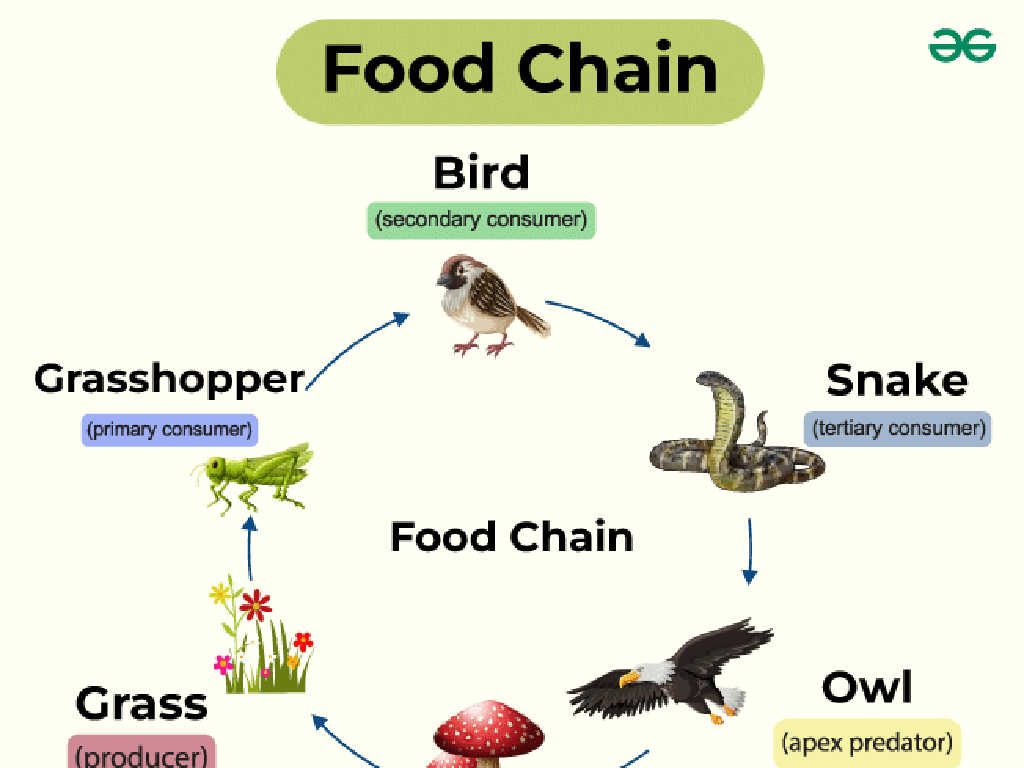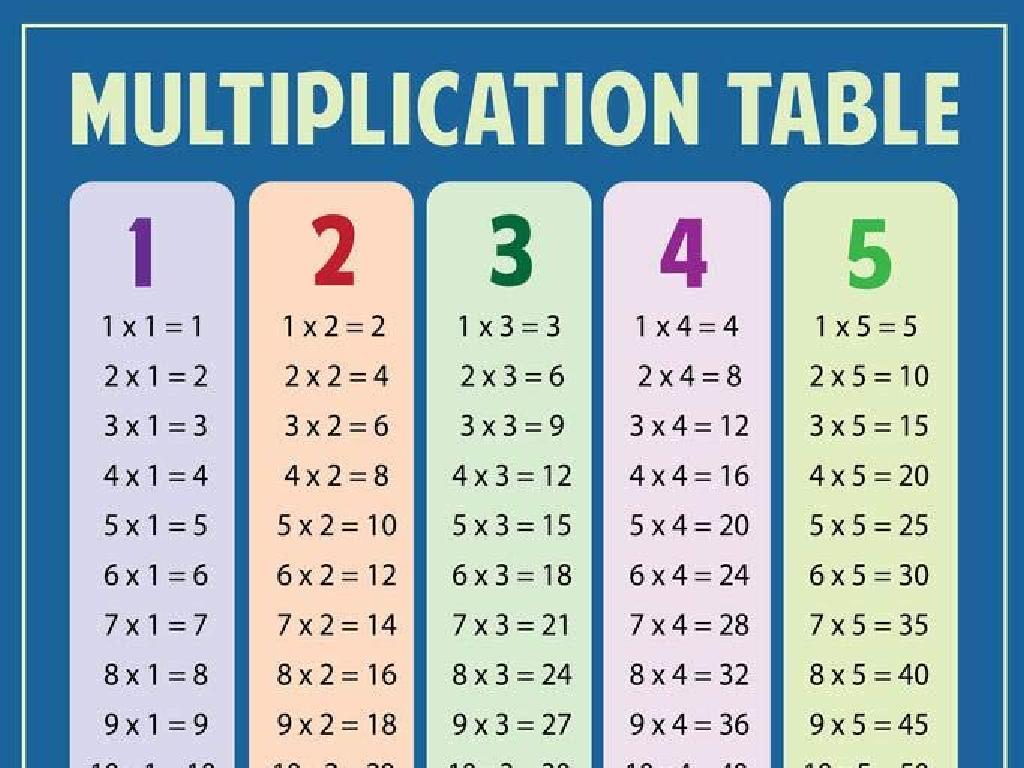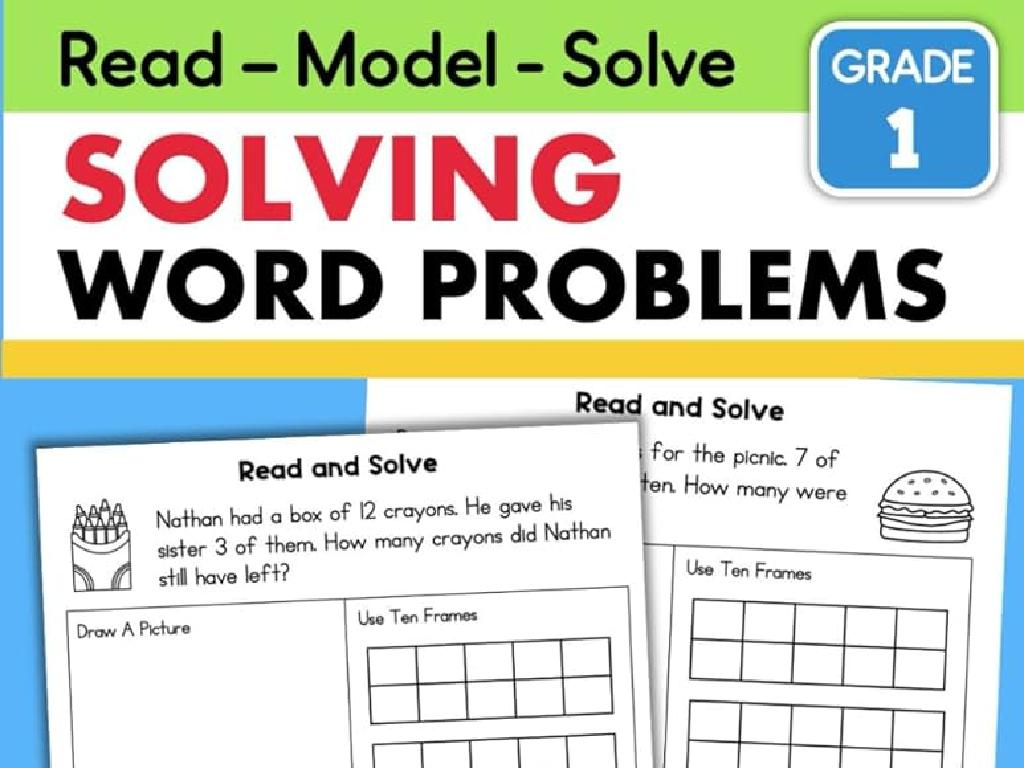Spell The Sight Word: Harder
Subject: Language arts
Grade: Third grade
Topic: Irregular Words
Please LOG IN to download the presentation. Access is available to registered users only.
View More Content
Today’s Adventure: Spelling Sight Words!
– What are Irregular Words?
– Words that don’t follow usual rules of spelling
– ‘Sound it out’ doesn’t always work
– Some words can’t be decoded easily
– Sight words need memory
– We remember how to spell by seeing them often
– Practice makes perfect
|
This slide introduces the concept of irregular words to third-grade students, emphasizing that these words do not follow the standard phonetic rules and therefore cannot always be ‘sounded out’. Explain that sight words are commonly used words that students need to recognize and spell from memory. Provide examples of irregular words and contrast them with regular words to highlight the differences. Encourage students to practice these sight words through repetition and exposure, as this will help them to remember the correct spelling. Activities can include writing the words multiple times, using them in sentences, or playing games that involve these words.
Spell the Sight Word: ‘Harder’
– What are sight words?
– Words we know by sight, no sounding out needed
– Irregular spelling rules
– Some words don’t fit the normal patterns
– Examples: said, are, was
– ‘Said’ not ‘sed’, ‘are’ not ‘ar’, ‘was’ not ‘wuz’
– Practice makes perfect
|
This slide introduces the concept of sight words to third graders, emphasizing that these are words they will often see and read without needing to sound them out. Highlight that while many words in English follow specific spelling rules, sight words often do not, making them ‘irregular’. Provide clear examples with words they are likely familiar with, such as ‘said’, ‘are’, and ‘was’, pointing out the irregularities in their spellings. Encourage students to practice these words regularly to become more fluent in recognizing and using them in their reading and writing. The goal is for students to instantly recognize these words to improve reading comprehension speed and ease.
Spell the Sight Word: Harder
– Irregular words break the rules
– Memorization helps with tricky ones
– Examples: enough, tough, through
– Words that don’t sound like they look
– Practice makes perfect
– Keep practicing these words to get better
|
This slide introduces students to irregular words, which are words that do not follow the typical phonetic spelling rules. Emphasize the importance of memorization for these tricky words, as they cannot be sounded out using regular phonics skills. Provide examples of irregular words and encourage students to recognize patterns in irregular words to aid in memorization. Use the examples given to show how the spelling does not always match the pronunciation. Encourage students to practice these words regularly, as repeated exposure and use will help them remember the correct spelling.
Spelling the Sight Word: ‘Harder’
– Why ‘harder’ is a sight word
– Sight words are common words that don’t follow regular rules.
– Breaking it down: ‘hard’ + ‘er’
– ‘Hard’ is a base word, ‘er’ is a suffix that means ‘more’.
– Practice saying ‘harder’ together
– Repeat after me: ‘hard-er’. Can you say it faster?
– Sight word game challenge
– Let’s play a game to find ‘harder’ in a story.
|
The word ‘harder’ is considered a sight word because it’s frequently used and its spelling doesn’t follow the basic phonetic rules, making it harder to decode. Start by explaining the concept of sight words and their importance in reading fluency. Break down the word into its base and suffix, and practice pronunciation as a class. Engage the students with a fun game where they find and highlight the word ‘harder’ in a story or passage, reinforcing their understanding and recognition of the word.
Memory Tricks for Spelling ‘Harder’
– Create a story with ‘harder’
– Imagine a character working ‘harder’ to achieve a goal
– Use ‘harder’ in a sentence
– ‘I studied harder for my test and got an A!’
– Draw a picture for ‘harder’
– A drawing of someone climbing a steep hill, showing effort
– Practice makes perfect
|
This slide is designed to help students remember how to spell the word ‘harder’ by using different memory tricks. Encourage them to create a short story where the character has to work ‘harder’ to overcome a challenge, which will help them recall the word in context. Have them craft a sentence using ‘harder’ to understand its usage. Let them draw a picture that symbolizes the word, such as a person trying hard to climb a hill, which can visually reinforce the spelling. Remind them that practicing these tricks will make spelling ‘harder’ words easier over time. During the next class, ask students to share their stories, sentences, and drawings to reinforce their learning.
Let’s Practice Spelling: ‘harder’
– Write ‘harder’ on your whiteboard
– Circle the ‘hard’ part of the word
– ‘hard’ is the tricky part, focus on that
– Create a sentence with ‘harder’
– Use ‘harder’ in a way that makes sense to you
– Share your sentence with a partner
– Practice speaking and listening skills
|
This slide is designed for a class activity to help students practice spelling the word ‘harder’, focusing on the irregular part ‘hard’. Students should first write the word on their whiteboards, paying special attention to the part of the word that can be difficult to spell. Encourage them to think about why ‘hard’ might be tricky and to circle it. Then, they should use ‘harder’ in a sentence of their own creation, which will help them understand the word’s usage in context. Finally, they will engage with a partner to share their sentences, allowing them to practice their speaking and listening skills. For the teacher: be prepared to offer guidance and corrections as needed, and consider having a few example sentences ready to share to help inspire students who might be struggling.
Game Time: Word Hunt!
– Search for sight words around you
– Spot the word ‘harder’ in class
– Look for ‘harder’ on posters, books, and labels
– Count how many times you find it
– Keep a tally of each ‘harder’ you see
– Get ready for a word adventure!
|
This interactive game encourages students to actively search for sight words in their immediate environment, reinforcing their ability to recognize and spell ‘harder’ and other irregular words. Before starting, explain what sight words are and why ‘harder’ is considered an irregular word. Demonstrate how to tally each occurrence of the word. During the activity, circulate the room to assist and engage with students. After the hunt, discuss the different places where ‘harder’ was found and the importance of context. This activity not only makes learning fun but also enhances observational skills and the ability to read words in various settings.
Reflection on Sight Words: ‘harder’
– Understanding ‘harder’
– ‘Harder’ is an irregular word that doesn’t follow typical spelling rules.
– Importance of sight words
– Sight words improve reading speed and comprehension.
– Create a sentence with ‘harder’
– Use ‘harder’ in a creative sentence to show understanding.
– Share with the class
|
This slide aims to consolidate the students’ understanding of the sight word ‘harder’ and the general importance of sight words in reading fluency. Discuss with the students how ‘harder’ is an irregular word, which means it doesn’t follow the standard rules of spelling or sounding out and therefore needs to be memorized. Emphasize that knowing sight words like ‘harder’ is crucial because they are common and can help students read more quickly and accurately. Encourage each student to think of a sentence that includes the word ‘harder’ and share it with the class. This activity will help assess their understanding and ability to use the word in context. Provide feedback and praise for creativity and correct usage.
Class Activity: Mini Spelling Bee
– Engage in a mini spelling bee
– Each student spells a new word
– Focus on fun and collective learning
– Encouragement for every attempt
– Cheer on classmates, learn from mistakes
|
This activity is designed to make learning sight words engaging and interactive. Set up a friendly competition where each student gets a turn to spell a word. Make sure to choose words that are challenging yet appropriate for third graders. Emphasize that the goal is not just to win but to have fun and support each other in learning. Possible variations of the activity could include team spelling bees, using words in sentences, or giving hints for difficult words. Remember to celebrate every effort to foster a positive learning environment.






